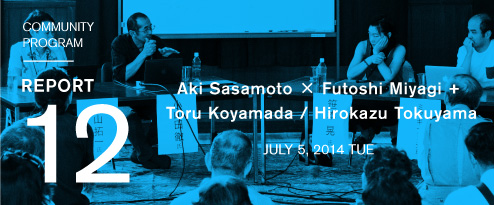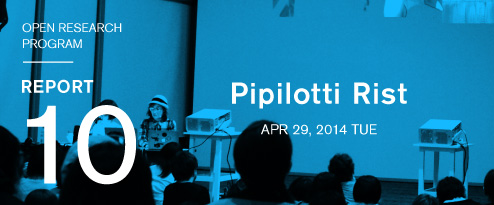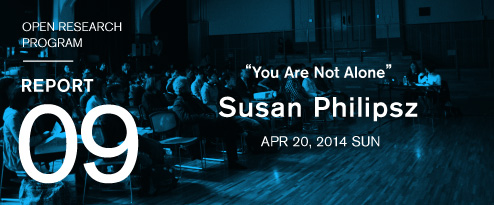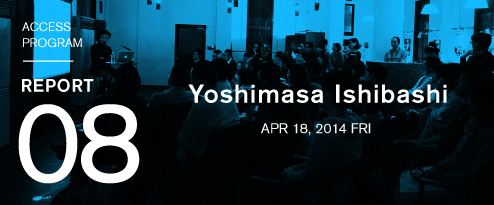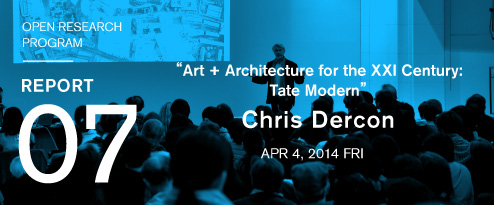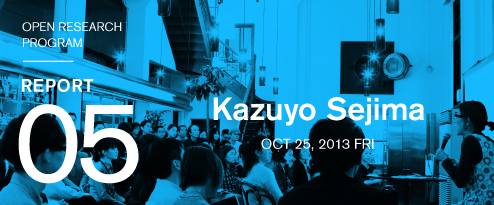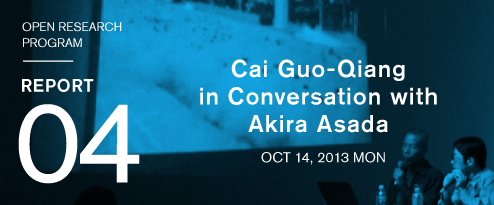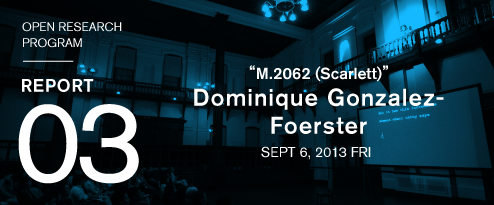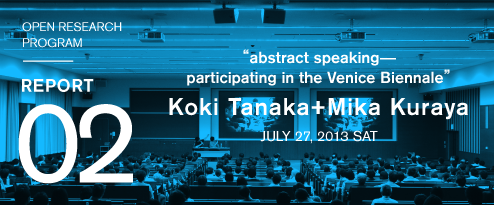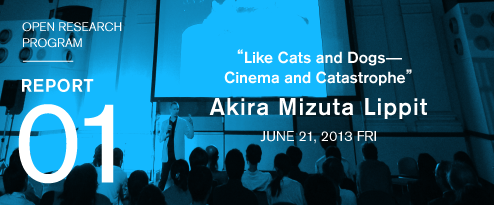イベント
- Open Research Program 01 [Lecture]
- Akira Mizuta Lippit
- June 21, 2013
- FRI
- 18:00–19:30
- Place: Annex Hall, The Museum of Kyoto
“Like Cats and Dogs—Cinema and Catastrophe”
- Admission:
- Free admission (no reservation required)
About the Open Research Program:
The Artistic Director and his curatorial team will conduct part of their research for Parasophia: Kyoto International Festival of Contemporary Culture 2015 publicly, in the form of lectures and other events in this program.
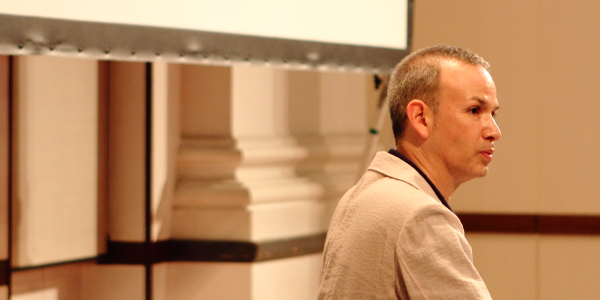

- Open Research Program 01 [Lecture]
- Akira Mizuta Lippit
- June 21, 2013
- FRI
- 18:00–19:30
- Place: Annex Hall, The Museum of Kyoto
Like Cats and Dogs—Cinema and Catastrophe
How can film portray history? How can it render photographically that which defies representation, that which eludes visibility? Aren’t reality and representation like cats and dogs, immiscible? Three films depict three catastrophes: the American Civil War, National Socialism, and the atomic bombing of Hiroshima. At key moments, The Birth of a Nation (1915), Triumph of the Will (1935), and Hiroshima mon amour (1959) also feature a cat—a rhetorical figure perhaps, a metaphor for the cinematic relation between historical representation and catastrophe. Why a cat? This lecture explores the relationship between film, catastrophe, and cats.
As our first Open Research Program, we presented a lecture by University of Southern California’s Professor Akira Mizuta Lippit, who is one of the foremost scholars of cinema in the world today. With D.W. Griffith’s The Birth of a Nation, Leni Riefenstahl’s Triumph of the Will, and Alain Resnais’s Hiroshima mon amour as his examples, Professor Lippit discussed complex ideas in simple terms, spanning such fields as comparative literature, film history, representation, cultural studies, and linguistics.
As described in Professor Lippit’s text above, central to the three films are three major historical catastrophes: the American Civil War and racism in The Birth of a Nation; Nazism in Triumph of the Will; and the atomic bomb in Hiroshima in Hiroshima mon amour. In each of these films, a cat makes an appearance that almost seems to be out of context, a catachresis of sorts. Professor Lippit guided the audience through a multifaceted reading of what these cats symbolize, and what is expressed through the cats in these particular scenes. He also discussed modes of expression that are possible in film but not in literature, the relationship between cats and the word catastrophe itself, and more.
The analysis and deep observations presented in this lecture begin with the attention to seemingly fleeting details in each work as a whole, and emerge through the intellectually stimulating process of reading between the cuts. A transcript of this lecture (in Japanese) and an essay based on the lecture (in English) are available in our Publications section, as Parasophia Chronicle vol. 1 no. 1 (PDF and EPUB).
(Photos by Takahiro Mitsukawa)
Open Research Program 01 [Lecture] Akira Mizuta Lippit “Like Cats and Dogs—Cinema and Catastrophe”
Date: Friday, June 21, 2013 6:00–7:30 PM
Venue: Annex Hall, The Museum of Kyoto
Presented by the Kyoto International Festival of Contemporary Culture Organizing Committee, Kyoto Association of Corporate Executives (Kyoto Keizai Doyukai), Kyoto Prefecture, and Kyoto City
Co-presented by The Museum of Kyoto
Under the auspices of The Japan Foundation
About the Open Research Program
The Artistic Director and his curatorial team will conduct part of their research for Parasophia: Kyoto International Festival of Contemporary Culture 2015 publicly, in the form of lectures and other events in this program.
Akira Mizuta Lippit // Born 1964, United States. Professor and Chair of Critical Studies in the School of Cinematic Arts, and Professor in the Departments of Comparative Literature and East Asian Languages and Cultures in the University of Southern California Dornsife College. Publications include Electric Animal: Toward a Rhetoric of Wildlife (University of Minnesota Press, 2000), Atomic Light (Shadow Optics) (University of Minnesota Press, 2005), and Ex-Cinema: From a Theory of Experimental Film and Video (University of California Press, 2012). He regularly teaches, lectures, and publishes in Japan, where he is a founding editor of the visual culture journal Ecce.




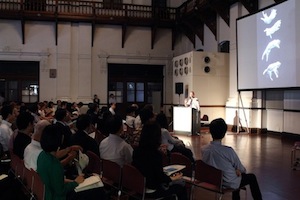
![Open Research Program [Lecture Series] Tatsuo Majima “Series Title Under Consideration” (1) “Open and Close, Close and Open, Open and Fold, Fold and Open: (Two-Hour Lecture On) Japanese Modern and Contemporary Art” flowing KARASUMA” Report](../../../../wp-content/uploads/2014/08/slide_majima1_repo_en.jpg)
![Community Program [Panel Discussion] Aki Sasamoto × Futoshi Miyagi + Toru Koyamada / Hirokazu Tokuyama JULY 5, 2014 Former Nishijin Elementary School Report](../../../../wp-content/uploads/2014/10/slide_sasamoto_cp_repo_en.jpg)
![Access Program [Gallery Talk] Personal Antidisaster Plan: Works by Pipilotti Rist and Others APRIL 29, 2014 The National Museum of Modern Art, Kyoto Report](../../../../wp-content/uploads/2014/10/slide_pipilotti_ap_repo_en.jpg)
![Open Research Program [Lecture] Pipilotti Rist APRIL 29, 2014 The National Museum of Modern Art, Kyoto Report](../../../../wp-content/uploads/2014/08/slide_pipilotti_orp_repo_en.jpg)
![Open Research Program [Lecture Series]Tatsuo Majima](/wp-content/uploads/2014/08/majima_orp3_repo_en_off.jpg)
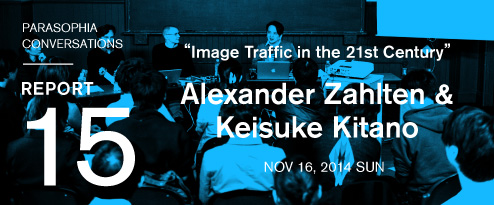
![Open Research Program 11 [Lecture] Ann Lislegaard](/wp-content/uploads/2014/08/lislegaard_orp_repo_en_off.jpg)
![Open Research Program [Lecture Series] Tatsuo Majima “Series Title Under Consideration” (1) “Open and Close, Close and Open, Open and Fold, Fold and Open: (Two-Hour Lecture On) Japanese Modern and Contemporary Art”Report](/wp-content/uploads/2014/08/majima1_repo_en_off.jpg)
